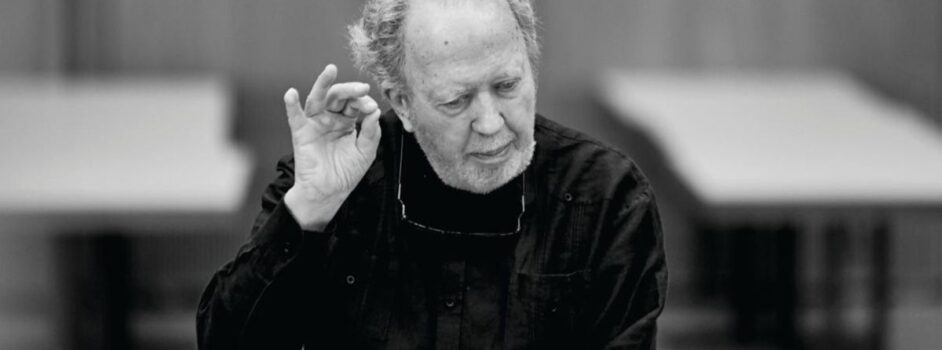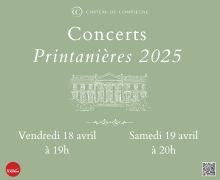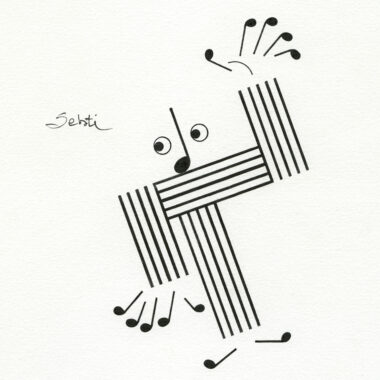John Storgårds talks about his new Sibelius symphony cycle with the BBC Philharmonic
Plus de détails
John Storgårds is currently Chief Conductor of the Helsinki Philharmonic Orchestra, Principal Guest Conductor of the BBC Philharmonic, as well as Artistic Director of the Chamber Orchestra of Lapland. Storgårds recently recorded the complete Sibelius symphonies with the BBC Philharmonic Orchestra for Chandos. Included in this new cycle are three late fragments, possibly derived from Sibelius’ unfinished Symphony No. 8. In this interview, Storgårds talks in depth about his approach to Sibelius, his work with the BBC Philharmonic on this project, Paavo Berglund, and how the Helsinki Philharmonic plans to celebrate the Sibelius year in 2015.
Chandos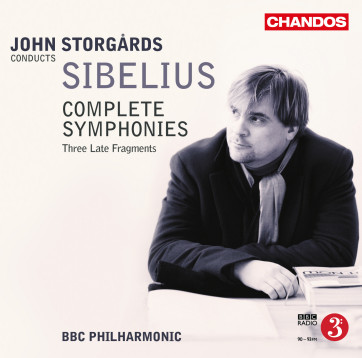 ResMusica: Although this is not a new symphony cycle of Brahms, Beethoven, or even Mahler, now we have new symphony cycle of Sibelius. Many of your Finnish colleagues have already recorded these works, sometimes more than once. What is it about these works which explains their timeless appeal? Why do people keep coming back to them?
ResMusica: Although this is not a new symphony cycle of Brahms, Beethoven, or even Mahler, now we have new symphony cycle of Sibelius. Many of your Finnish colleagues have already recorded these works, sometimes more than once. What is it about these works which explains their timeless appeal? Why do people keep coming back to them?
John Storgårds: I think that there is still so much to be found in his music, in a timeless way, and from so many different perspectives.
For composers of today, Sibelius is very interesting. The process of how he developed as a composer, his way of working with his materials (for ages, before he was ready, especially with the symphonic repertoire), and a very strong and individual development in his way of composing.
On the other hand, for listeners of today, the music is still strong, and in a positive way, uplifting. If Sibelius is played well, it really has a lot to give to people. This is because of the qualities in the music as well as its positive life-force. There is something genuine about this.
Even in the darkest parts of his music, there is still such a strong feeling of the present, of life, of the substance of being human. This is of course hard to explain. Not every composer has this, at least in the same way. I think this is one reason why people always come back to this music, why it always speaks to people, why people do not get tired of listening to so many different kinds of interpretations of his main works, and why conductors (not just Finnish conductors) want to do their own cycles, concerts, recordings, whatever.
That is what it is for me as well. I grew up with such a strong feeling for being involved with his music, and getting deeper into it as the years passed. I undoubtedly got the feeling that it would not be wrong if I would do my own cycle at some point, even on CD. This is because I have lived with the symphonies for such a long time now, and for myself have discovered things that I really believe in, that are important, and that I want to express. I do not feel that I am an individualist conductor who wants to put a certain clear stamp of how I want to interpret things.
He is not easy for a conductor. He gives you clear markings and clues as to what he is after, but not so precise as in Mahler. In the end, you really have to work with the music and get the feeling that now, it is right. Now, the sound is right. Now, the balances are right. Now, I hear this little motive in the second oboe in the right relation to what is heard in the first violins, or something like this. On one hand, his music is so full of details, yet on the other hand, the general flow, shape, and structure is never to be lost. This is also extremely important. You cannot too freely do too many things, I think. It is possible to lose something, what is really there, in the general, very natural structure. It is this structure which grabs you, in a very naturally musical way. You have to get all these details heard, yet at the same time not destroy the big lines, the intensity, the great power and flow. That is the challenge.
RM: What kinds of insights have you tried to reveal in your cycle? Have you tried to forge a distinct approach compared to your forerunners?
JS: First of all, since I already knew that I was going to do this huge project with the BBC Phil, it has been a long-term thing, which is very good. We did a lot of concerts involving all the symphonies, over a span of two years. This included Proms concerts as well as concerts both in and outside of Manchester. During this period, we already started recording, little by little. The last session was related to the cycle that we performed in concerts over the course of one week, in Manchester.
Some years ago, when I knew that I was going to do this project, I kind of stopped listening to what other conductors have been doing. I have already heard so much before, I have truly listened to a lot of interpretations, from many directions. Of course it has been interesting as well as important and inspiring to hear. Even the interpretations I have not liked, there must have been something interesting in why I did not like it.
But when I got into this project, in reality, I did not want to feel like I had to do something in another way, or to compare my interpretations with some other conductors. I tried to forget everything, what I have heard–just to be with the composer, the scores, myself, and the orchestra I work with.
The orchestra is definitely part of it all. There is a trust both ways–I trust them and they trust me as well. In this kind of situation, a lot of things happened in the rehearsals which got me towards something I believe in–this has been the only way of getting into my interpretations on these recordings. I was not thinking about if I want to point out some kind of details at some specific place in another way that someone has done or not done.
RM: British orchestras and audiences are familiar with Sibelius, as his music has been championed by British conductors such as Malcolm Sargent, Simon Rattle, and Colin Davis. How do you think of the BBC Philharmonic as a Sibelius orchestra?
JS: As far as I know, the BBC Phil had played all the symphonies before, but not so much as some other British orchestras. There certainly are some other British orchestras who have been more familiar with the Sibelius symphonies. I think one of the ideas from the BBC Phil administration when they booked me as principal guest conductor is that they really wanted me to get them more into Sibelius–that was one composer that they wanted me to be involved with from the beginning. I was very happy about this.
We actually started talking about recording all the Sibelius symphonies immediately at the first talks we had. This was very exciting and interesting for me. In a way, I feel that probably the BBC Phil's tradition on how to play Sibelius is at the moment very much connected with how I do it with them. Their tradition in this music has not been clearly established from before.
For example, when we did the fourth symphony, there were people who hardly remembered when they did it the last time. Also, the sixth and third they had not done so much. The seventh they had actually done with many different conductors. The first they had done a lot. They actually had a very strong, individual approach, which was great. I also felt that I got a lot from them in the way we did this symphony. It was not just me giving my vision to them, it was also them giving me some of their vision that they already had.
The BBC Phil is an orchestra that gives it all in concert, but also when the red light is on. This is not immediately automatic with all orchestras while recording. With the BBC Phil, in the studio it is like being in concert. I think that can be heard on this box set. I am very happy about this. Listening to it all now, after editing and everything, I still feel that it is alive. There is a feeling of live performance, in a good way. They really put all their hearts into it. They should be able to convince anyone that they are high up as a Sibelius orchestra.
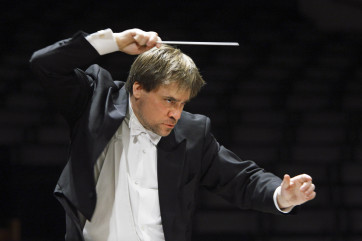 RM: Paavo Berglund was arguably one of the greatest Sibelius interpreters that ever lived. Is it true that you studied with him? If so, how has your work with him influenced your approach to conducting Sibelius?
RM: Paavo Berglund was arguably one of the greatest Sibelius interpreters that ever lived. Is it true that you studied with him? If so, how has your work with him influenced your approach to conducting Sibelius?
JS: I did not study with him in the normal sense, but one could say that we became close in his very last years. It started when I was still a concertmaster in a project where he conducted the Avanti! chamber orchestra for the first time. We had met before, shortly, and he had also visited the conductors' class at some point when I was there. But it was in the Avanti! project, back in 2000 I believe, when he was still in fantastic shape, that we became close.
Afterwards, he was very interested in what I was doing, both with conducting and playing. I have always respected and admired him, not only with Sibelius, but in general. He was a big hero for me.
We discussed things when we met, and he came to my concerts. At least quite a few of the last concerts he attended were mine, both with the Helsinki PO and the Sibelius Academy Orchestra.
I discussed music, especially Sibelius, with him at his home. We had two sessions where we really went through the scores, all the symphonies. It was, in a way of course, the master and the little boy, I felt. On the other hand, it was not. He was not teaching me, and I was not asking him how to do this or how to do that. We were discussing. This was very interesting, because he was always discovering new things with these pieces. All of his interpretations were very different from one another.
Even when he stopped conducting, he was still eager to find something new in his view of these pieces. What we had in common was a huge trust in the quality of this music and also a huge interest in the many details in the score.
At the time, I did not know yet that I was going to record all the symphonies. This was a few years ago. Having done this project, I am now even more grateful that we had these sessions. So, I was not completely studying with him, but in this sense, yes.
RM: With the possible exception of the first two symphonies, Sibelius occupies quite different expressive worlds from one symphony to the next. Have you tried to employ a consistent approach with each symphony, or have you tried to view each symphony as its own unique entity?
JS: It is a good question. In one way, I think one has to take every symphony as a separate adventure, because they are so individual. On the other hand, there are some specific sounds that are in all his works. In that sense, I have probably taken a similar approach to them all, which may be heard in the final result. This has to do with the general soundscape and balance that I am after. For example, bass lines, woodwinds, lower strings, amount of vibrato, these kinds of things.
However, as I said earlier, every symphony is such an individual piece of art that you have to take it as one thing, not related to the others. It has to be right, but within its own world. For example, you cannot use vibrato in the fourth symphony in the same way as the first or second symphonies.
RM: It might have been Eliahu Inbal who said that the Mahler symphonies are like 9 (or 10, depending on what you believe) chapters in a gigantic novel. Is it like that with Sibelius? Is it 7 chapters in a novel or 7 individual stories?
JS: I see it more as 7 individual stories. With Mahler, absolutely, every symphony is related to the predecessor. It is an ongoing story, from beginning to the end. With Sibelius, it is not the same. As you said, you can see relationships between the first two symphonies. But from there on, you could never have guessed what kind of symphony would be number three after number two. And after three also, number four. And then, even more of a surprise, after going in the direction of numbers three and four, then comes five, something totally different.
Number five is one of his most performed symphonies. The end is very positive and full of energy, but not in the same way as the second. He is not telling the same story, with just another chapter. He is really into something totally new, again. Number six has a totally different soundscape and color compared to the others. Number seven was originally a one-movement fantasy, but it is certainly worth being called a symphony.
Absolutely, they are individual novels, or stories.
RM: You have known and conducted these works for a long time. How have your opinions (and interpretations) evolved over time?
JS: Probably not very much. Even before I started conducting these works actively, I always loved them. I was already reading the scores before I knew I was going to be a conductor, while I was studying composing.
When I finally started conducting them, around the time I was 30, I started with the fifth symphony. The fifth symphony is the hardest one for an inexperienced conductor. Already at that point I had a vision on how this work should be. My way of conducting it has of course developed, but this has to do more with me developing as a conductor in general. I have developed in terms of how to get my visions and ideas produced. The interpretations in themselves have not changed so much.
Probably the symphony that I have had the hardest time with, generally, has been number six. I think it is probably so for many conductors. It is so fragile in the end, and it is so much about getting the right relationship with character, tempi, sounds, and colors. So, my first three performances of the sixth were probably not so brilliant. It took time before I got there. It took time before I even felt like I was on the right boat.
With the fourth, I felt totally at home from the very first time I touched it. The fourth has never been a problem for me.
RM: You have included on this recording a performance of sketches from what might have been Sibelius' Symphony No. 8, perhaps one of the greatest mysteries in the entire universe of music. Tell us a little bit more about this, and if you feel that a performing “realization” of the Symphony No. 8 may ever be possible?
JS: To answer the last question, it will not be possible unless a lot more is found, for sure. I really hope that nobody is going to try to build something more. It is a matter of two minutes, very short fragments.
I am very happy that I personally got permission from the Sibelius family to include the fragments on this concept. They have already been recorded for BIS, but in a totally different concept. The BIS CD includes only fragments and rarities. Including these fragments in a box set of the symphonies, however, makes sense for the listener. Here it is possible to listen to the fragments in the same context of the symphonies performed by the same orchestra and conductor, in the same sound.
We cannot be 100% sure that these three fragments are related to the eighth symphony, but we can be sure that he worked with this material, after the Symphony No. 7 and Tapiola. The fragments must be related to some orchestral thoughts he had in mind, and that makes you think that probably, some of it is related to the eighth symphony.
The longest of these fragments is definitely the beginning of something. It is so amazingly dissonant. He goes on with this course all the way–you really wonder how he could go on with this. It is really exciting and somehow sad. It is also somehow not so sad–I can also understand that he was getting into something genuine again, but it was too late. He was getting too old, he was shaking, having difficulty writing. When he finally destroyed the sketches, he was very relieved and happy. It could not have been the wrong solution, at least for himself. For the rest of us, it is sad.
He knew what he was doing with all of the previous symphonies. Every symphony was a long-term project, it took time before he was ready, before he was satisfied. I have all respect for him making the tough decision.
RM: Is it true that the first time the sketches were performed in Helsinki the orchestra was not aware of what they were playing? If so, what was the reaction when they were informed of the identity of the music?
JS: Kind of, yes. We were actually rehearsing the fourth symphony at that time. I said to Vesa Sirén (head music critic of the Helsingin Sanomat, Helsinki's main newspaper) and Timo Virtanen (Sibelius scholar) that I could spare 10 minutes of rehearsal to play through it.
I think I might have told the musicians that the music was late fragments from Sibelius. Those who knew Sibelius' life story could imagine that this has to be related to the eighth symphony, somehow. We played them twice through, and then it was recorded.
It was interesting to see the reactions of the players. I could see some players were really moved by this. For myself too, I was also very excited. Marianna Kankare-Loikkanen (information officer of the Helsinki PO) was crying. It was a special moment.
The reaction after that, when Helsingin Sanomat put it on YouTube–maybe not millions of people but thousands of people watched it. Very quickly too, so it made a huge impact.
I am glad that I have now had the possibility to properly record them. We did it one more time for a BBC4 program with the Helsinki PO, so I really got to know these fragments. I even made some small dynamic adjustments. These things are now there in the recording with the BBC Phil–this is a proper, expressive, live performance with good studio technique and sound. The listener now has the chance to hear to them properly.
RM: In 2015, Sibelius will celebrate his 150th birthday. As chief conductor of the Helsinki PO, the orchestra most closely associated with Sibelius, how do you and the orchestra plan to commemorate this occasion?
JS: We are going to perform all the symphonies, as part of a season-long project, starting in January 2015. I will conduct them all myself chronologically, from one to seven. This will actually be the first time that I will conduct all the symphonies, and it will actually be my last chance as chief conductor of the Helsinki PO. In that way, it makes a lot of sense–it is my last season with them, and it is the Sibelius year.
I have done a lot of the symphonies over the years, but not so much in Helsinki. I have done them in other parts of Finland and all over the world. In Helsinki I have conducted most of them, but not as a cycle, and not all with the Helsinki PO. It is a genuine possibility for me to present my cycle of the symphonies. Even if it is not a very surprising idea, it is an obvious idea.
Related to this, we have commissioned some pieces which fit well into the Sibelius year. I will not tell you all the names, but there will be, for example, one composition which is conceptually related to the Kullervo symphony. Same idea, same Nordic mythological text origin, two soloists, male choir, orchestra. In the concert with the sixth symphony we will give the world premiere of the sixth symphony of a living composer.
We have some touring as well, and we will be in the Sibelius-Nielsen cycle in Stockholm.
John Storgård's new Sibelius symphony cycle with the BBC Philharmonic Orchestra is now available on Chandos Records (CHAN 10809).
John Stogårds © Heikki Tuuli
Plus de détails
John Storgårds is currently Chief Conductor of the Helsinki Philharmonic Orchestra, Principal Guest Conductor of the BBC Philharmonic, as well as Artistic Director of the Chamber Orchestra of Lapland. Storgårds recently recorded the complete Sibelius symphonies with the BBC Philharmonic Orchestra for Chandos. Included in this new cycle are three late fragments, possibly derived from Sibelius’ unfinished Symphony No. 8. In this interview, Storgårds talks in depth about his approach to Sibelius, his work with the BBC Philharmonic on this project, Paavo Berglund, and how the Helsinki Philharmonic plans to celebrate the Sibelius year in 2015.
Chandos

